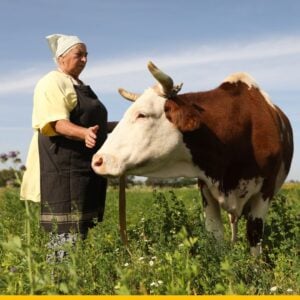In Zimbabwe’s semi-arid districts, climate-smart irrigation schemes are helping farmers overcome erratic rainfall, increase harvests, and secure more stable incomes. Supported by FAO and its partners, these initiatives are enhancing community resilience to climate shocks while safeguarding natural resources. By combining infrastructure improvements with capacity-building, the programs are transforming how smallholders manage water, crops, and markets.
A FAO-led assessment under the Regional Office for Africa’s Lessons Learning and Knowledge Sharing Initiative on Resilience evaluated these irrigation schemes using a harmonized measurement tool developed during the 2024 regional workshop. The findings, shared at the 2025 Community of Practice, indicated that irrigators supported by FAO scored significantly higher on resilience indicators than non-irrigators, showing a stronger ability to prevent, anticipate, absorb, adapt, and transform in response to climate shocks.
Over the past five years, 45 irrigation schemes have been rehabilitated across 2,000 hectares, benefiting more than 20,000 people. Farmers who previously harvested only once a year are now producing two to three cycles annually. Technologies such as solar-powered pumps, drip systems, and microjets have reduced costs, conserved water, and boosted crop yields, illustrating the impact of efficient irrigation solutions.
Beyond technological upgrades, the schemes emphasize sustainability through strong local governance, farmer-to-farmer training in crop planning, marketing, and business skills, and collective sales of high-value crops like sugar beans. Institutional support, including the upgraded Zimbabwe Irrigation Technology Centre and partnerships with agribusiness, finance, and insurance providers, has further reinforced these gains, enabling farmers to access private markets and improve livelihoods.
“Irrigation is more than infrastructure—it is about empowering rural communities through knowledge, partnerships, and sustainable practices,” said Patrice Talla, FAO Subregional Coordinator for Southern Africa. Zimbabwe’s experience demonstrates how investing in climate-smart irrigation can transform lives and build resilience against the impacts of climate change. These lessons are now contributing to FAO’s wider knowledge-sharing efforts across Africa, supporting resilience goals under Agenda 2063, the Sustainable Development Goals, and the Post-Malabo Declaration.






